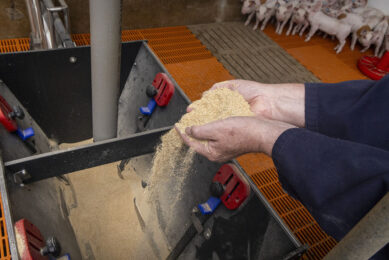Case study: Philippines grain imports decline

Philippine imports of wheat, corn and rice will decline in the market year (MY) 2019/20 as the country returns to more normal weather conditions following El Niño. Due to lower rainfall, crop output, which accounts for about half of total Philippine farm production, fell 5.7% in the April to June 2019 period.
ASF affects feed demand
Overall feed grain consumption in the Philippines is forecast to slow down in MY 2019/20 due to the outbreak of ASF in July 2019 and its expected impacts to animal feed demand. This will be partially offset by the return to more normal weather conditions, contributing to increased rice and corn production.
Wheat imports in MY 2019/20 are lowered 350,000 tonnes to 7.1 million tonnes in light of the confirmed presence of ASF on the main island of Luzon, a major production area for hogs in the Philippines. The reduced volume represents the estimated amount of feed energy needed, assuming a 10% reduction in hog feed demand during the July-June crop year. Imported feed wheat is expected to be affected the most compared to corn and cassava (i.e. tapioca), which are both grown locally.
Biosecurity measures for plant-based feed
In June 2019, a memorandum was issued imposing safeguard and biosecurity measures for plant-based feed products from ASF-declared countries. For imported feed products arriving from countries with ASF, a holding/quarantine of 20 days will be required from the day the product was put on board, which can include the time in transit. In the case of countries with shorter transport times to the Philippines, such as China and Vietnam, a 10-day holding period will be applied at the consignee’s warehouse following the shipment’s arrival.
Corn for animal feed
According to the Philippine Statistics Authority (PSA), corn output declined nearly 9% from April to June 2019, compared to the same period last year. This was due to decreases in harvested areas and yields in most regions because of the dry spell caused by El Niño. A return to more normal weather conditions in MY 2019/20 will enhance increased production during the year.
The proposed 300,000 tonnes of duty-free corn imports petitioned by local feed millers earlier this year will need approval from the National Economic and Development Authority (NEDA) before the Philippine Tariff Commission (PTC) can act on it.
Demand for corn feedstock is likely to buoy continued corn imports through MY 2019/20.
The country’s corn inventories as of August 2019 reached 724,000 tonnes, 41% lower than the previous year’s 1.2 million tonnes, according to the PSA. The August inventory was 12% lower than the 823,000 tonnes stock level recorded in July 2019.











